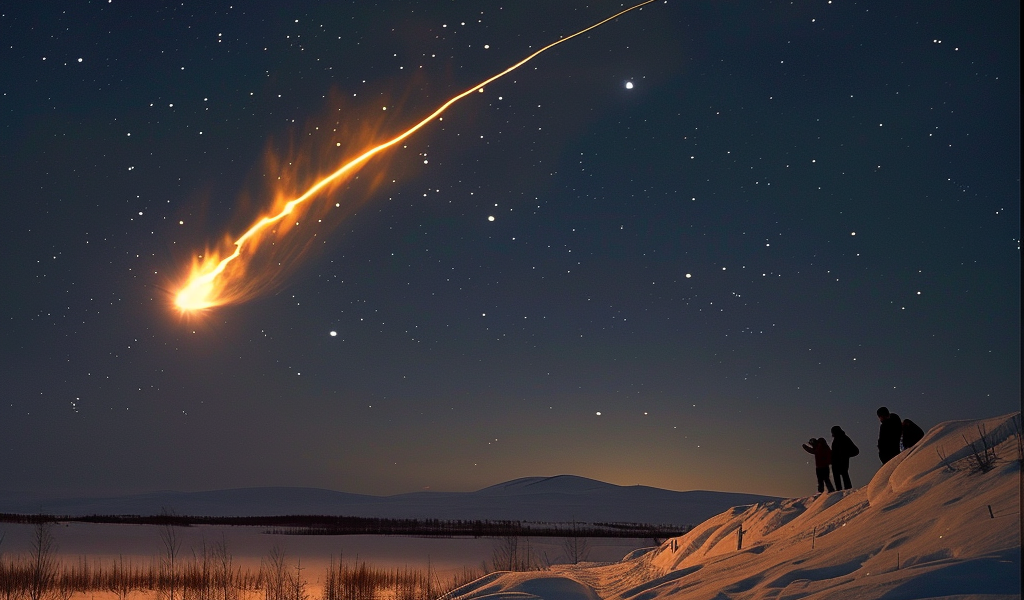In the early hours of Wednesday morning, a small asteroid made a dramatic entrance into Earth’s atmosphere, creating a stunning fireball visible across the far eastern regions of Russia. This celestial event captivated residents of the remote Russian republic of Sakha, located in northeastern Siberia, who braved the snow to witness the spectacle.
The European Space Agency (ESA) reported that the asteroid, measuring approximately 70 centimeters in diameter, entered the atmosphere at 01:15 local time (16:15 GMT). Astronomers had detected the asteroid about 12 hours prior to its arrival, allowing for adequate preparation and awareness of the impending phenomenon.
As the fireball illuminated the night sky, the Sakha emergencies ministry activated emergency protocols, placing officials on alert. Fortunately, there have been no reports of damage or injuries following the asteroid’s descent, indicating that it posed no significant threat to the local population.
Witnesses described the event as breathtaking, with many taking to social media to share their awe and excitement. The asteroid’s fiery passage was not only a visual treat but also a reminder of the dynamic and ever-changing nature of our universe.
This incident highlights the importance of ongoing astronomical monitoring and the capability of agencies like the ESA to track near-Earth objects. Such vigilance is crucial in assessing potential risks posed by asteroids and other celestial bodies that may enter Earth’s vicinity.
In recent years, there has been a growing interest in the study of asteroids, particularly in relation to planetary defense. Scientists and researchers are continuously working on methods to detect and mitigate any potential threats from space, ensuring that humanity is better prepared for any future encounters with asteroids.
The event in Sakha is a testament to the wonders of space and the importance of scientific observation. As technology advances, our ability to predict and understand these cosmic phenomena continues to improve, offering insights into the origins of our solar system and the potential for future exploration.
As discussions about space exploration and planetary defense gain traction, public interest in such events is likely to increase. Educational initiatives and outreach programs can play a significant role in fostering a deeper understanding of our universe and the challenges it presents.
Asteroids, while often perceived as threats, can also provide valuable information about the early solar system. By studying their composition and behavior, scientists can gain insights into the formation of planets and the conditions that may have led to the emergence of life on Earth.
In addition to their scientific significance, asteroids can also spark curiosity and excitement among the general public. Events like the one in Sakha serve as a reminder of the beauty and mystery of the cosmos, encouraging people to look up at the night sky with wonder.
As we continue to explore the universe, it is essential to balance our fascination with the unknown with the practicalities of ensuring our safety. The recent asteroid event in Russia underscores the need for ongoing research and collaboration among scientists, governments, and international organizations.
In conclusion, the fireball seen over Russia’s far east serves as a powerful reminder of the dynamic forces at play in our universe. With continued advancements in technology and a commitment to scientific inquiry, we can better understand and appreciate the wonders of space while also safeguarding our planet from potential threats.





